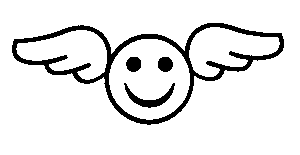“How can I be prettier?”: Inside the brutally honest world of glow-up culture
Want to know how you really look? Ask the internet — they’ll come with receipts
2023-10-06
Artwork: @thedivinefemininebabe, @tiktokprettier, @carolien79, @seducenaire
Text: Kate Fowler
“How can I be prettier?” 25-year-old Teala asked an infinite potential of strangers. “Be brutally honest,” she insisted. “I don’t want compliments.”
It might sound like an unconventional plan, and one that takes balls of steel, but Teala isn’t the only one up to it. She’s one of many young women taking to asking strangers online how they can improve their looks, through the means of TikTok. #howcanIbeprettier has over 46M views on the app while #howcanilookprettierbebrutallyhonest has 3M.
Everyday people and influencers alike who want to change up their look, or in some cases completely transform their appearance, are willingly having their faces analyzed and critiqued. Suggestions range from changing the hair parting and wearing winged liner to fillers and tattoos — and people are going through with it.
Asking millions how to be pretty has become its own booming TikTok community.
For Teala, searching on TikTok for her glow up meant getting a new, honest perspective and she wasn’t scared. “Obviously what I’ve been doing isn’t meeting that expectation I have for myself. So maybe I need to look at it from a different angle,” she says. “Maybe having something that feels more like me based on what other people who don’t even know me would say [would be best].”
Asking millions how to be pretty has become its own booming TikTok community. Catharina runs a popular account dedicated completely to answering the calls of young women on the app, sharing videos in which she digitally alters a still from videos to how she thinks would be best, before sharing it to her account with over 32,000 followers and 3.2M likes.
Subreddits like Vindicta, Splendida and True Rate Me focus on the idea of beauty as an objective science. Although it’s something that’s been debated throughout history by philosophers, sociologists and psychologists, these groups are sure of it.
“I know very well how it is to feel insecure,” Catharina tells the Digiverse. “I wanted to show them what great looks they could pull off with a video.” Now, she’s made over 180 digital makeovers, both on her TikTok and via private requests. Catharina says she avoids making any drastic changes, but if a person requests, she will offer advice on aesthetics like fillers and Botox too.
This isn’t the first time people have turned to the internet for glow up advice and Subreddits like Look Your Best (46k members) and The Glow Up (32k) run entirely on this blueprint — people upload selfies to get advice on how to improve their appearance. Advice is usually sandwiched between compliments and users can select “no surgery” and “no Botox and fillers” if they choose, otherwise, it’s all on the table. A moderator for Look Your Best described the group to the Digiverse as similar to the women’s bathroom on a night out, with strangers asking one another they did their makeup and enthusiastically helping each other.
For Catherina, her expertise stems from her time painting portraits that got her familiar with colours and proportions. “I always loved makeup, decorating and making things beautiful, so it’s been an interest of mine forever. I always want to know why, why is this beautiful, why does this fit so well? So this is where science satisfied my curiosity.” She lists beliefs like the tilt of the eyes, eyebrows, symmetry and “golden ratio” as some of her main points of reference when doing her TikTok makeovers.
If those terms sound familiar to you, it wouldn’t be surprising. The idea that a “science” behind beauty exists has recently been taking over on TikTok. The app hosts various filters that allow people to find out if they have a “positive canthal tilt” or if the proportion of their face fits the so-called “golden ratio.”
While many claim it’s an incel-related attempt to lower self-esteems, especially of women, the [Look Your Best and True Rate Me] mod denies this and says it’s “good for people to know realistically where they stand and what their potential could be.”
Subreddits like Vindicta, Splendida and True Rate Me focus on the idea of beauty as an objective science. Although it’s something that’s been debated throughout history by philosophers, sociologists and psychologists, these groups are sure of it. In recent months, Subreddit True Rate Me (250k members) has found itself suddenly booming. It’s a sub dedicated entirely to rating submitted selfies on a scale of 1-10, based entirely on “objective beauty” referencing studies on what “scientifically” makes someone beautiful. Overwhelmingly, photos rarely ever get ranked above 5.
The Look Your Best moderator also moderates for True Rate Me and explains that ranking low on their scale isn’t indicative of “real life beauty standards,” which is subjective, but just how they rank according to an “objective” measurement of beauty they believe exists separately, taking into account symmetry, facial harmony and more. The group has its own chart, with photos of real people that fit into each number. No one on earth, the scale claims, fits into a number 10.
We’ve definitely seen the rise of young people knowing anatomy that just wouldn’t have happened [without social media] and this microanalysis of absolutely every feature.
So, if this controversial scale is indicative of only one template of beauty, that isn’t an ultimate decider, then who could it possibly be benefitting? While many claim it’s an incel-related attempt to lower self-esteems, especially of women, the mod denies this and says it’s “good for people to know realistically where they stand and what their potential could be.” She says she often directs people to post in Look Your Best after too for changes to make.
Elizaebeth Daniels, director of the Centre for Appearance Research at the University of the West of England describes beauty as culturally determined and beauty science as pseudoscience. “We can see that through change over time and also different beauty ideals in different cultures,” she says. “So this is very much a social phenomenon and when we medicalize it, we seem to be saying that it is static and universal whereas beauty can be very expansive and individual.”
“We’ve definitely seen the rise of young people knowing anatomy that just wouldn’t have happened [without social media] and this microanalysis of absolutely every feature,” explains Daniels. “It seems like using these medical terms and measures in these different ways, it’s as if there’s this [false] authority that’s being attributed. It’s so narrow and it’s premised on Eurocentric [appearances] thereby excluding a huge number of people.”
It’s clear to see why people would have concerns and why a mainstream focus on this belief of a “one size fits all” objective beauty could be harmful — especially when applied to strangers online. Although some feel they are able to separate the idea of a “scientific” beauty from real life, what happens when people unsurprisingly take it as gospel and warp their sense of self and others through its lens? Case in point: TikTok videos marking those with one side profile an “angel” and another a “witch.” An angel skull, which has appeared n other unhinged corners of the internet before, is claimed to be a more feminine skull shape with a projected jaw and chin. Sounds a little like phrenology.
As explained by Daniels, this has a focus on Eurocentric features. Although many of these beauty science communities deny this and on some Subreddits for example, even rule that users should evaluate “without using ethnicity as a determinant,” it feels impossible to disconnect the link between their science-dictated beauty and Western features. The “witch skull” for example, features a hooked nose, while the “angel” features a small, upturned nose. “Sweeping, curvy eyelids,” are deemed on Vindicta as “what makes eyes attractive” while TrueRateMe rules “fine eyebrows” and a “small, slim [nose with] no bulge” as a top-tier ruler. “As much as I want to looksmaxx, sometimes I can't help but feel like I have to compromise my ethnic look to be seen as more desirable,” confessed one anonymous user on a “VindictaPOC” post.
Such accounts are an upfront discussion and admittance to wanting to gain the benefits of pretty privilege for more than just feeling good when you look in the mirror. Beauty as a science, offers up a step-by-step for how they can achieve it, they believe.
Much of this content focuses on the realities of pretty privilege with content suggesting how being beautiful lets you “live life on easy mode”: doing better at work, marrying up and generally swimming through life far easier. It’s not wrong — physically attractive workers are even thought to earn up to 15% more than those considered less attractive, according to one study. Such accounts are an upfront discussion and admittance to wanting to gain the benefits of pretty privilege for more than just feeling good when you look in the mirror. Beauty as a science, offers up a step-by-step for how they can achieve it, they believe.
The admittance of wanting pretty privilege seems a far cry from the body positivity and inclusivity movement of the 2010s, which sought to uproot the system by widening beauty standards, rather than by trying to win at them. The movement defined the 2010s, and was proven to have a positive impact on women’s body image. In 2018, Victoria’s Secret closed the doors on its annual fashion show, which was highly critiqued for its lack of inclusivity and promotion of narrow beauty standards. This year, the show restarted, albeit with an attempt at changing things up. The show, however, was met with multiple viral videos of people demanding the nostalgic VS back — even if it made them feel bad.
Teala said when she posted her video, she felt that some people took it as an opportunity to “push their own agenda or their own beauty standards,” adding that one user continued to attempt to tell her to lose weight, even after she explained that it wasn’t a concern of hers. “They just kept going on and on and on,” she says.
“To see girls putting themselves on social media, opening themselves up for criticism in this way really makes me worry,” says Daniels, highlighting the young ages of many of these TikTok users. While for people like Teala, the video was a fun request for a makeover, there’s a clear sense of desperation for others — a plea to improve looks before term starts and begging for no one at school to see. If I look hard enough at the video, I feel I, along with many others, can see myself in it too. It’s the same longing that found 11-year-old me YouTubing “how to be pretty” and (thankfully) being generically told to curl my lashes rather than being served a breakdown of my face. When I was 13, a kid at school told me I needed a nose job and I still think about it to this day. Now, I imagine if I’d have invited someone to analyse my face and been presented with a study to prove it at the same time.

Welcome to the Digiverse, your portal to internet enlightenment.
From IRL to URL, digest the best of algorithm-driven culture – news, trends and insights – powered by The Digital Fairy.










